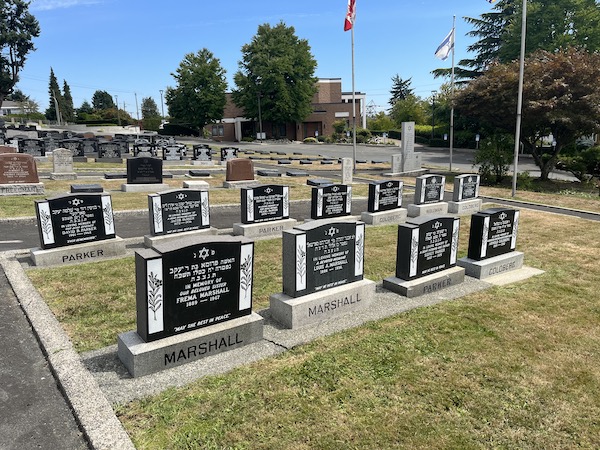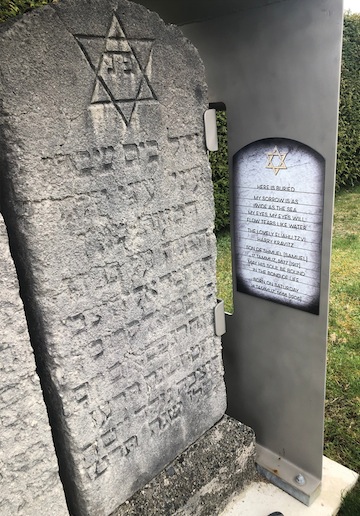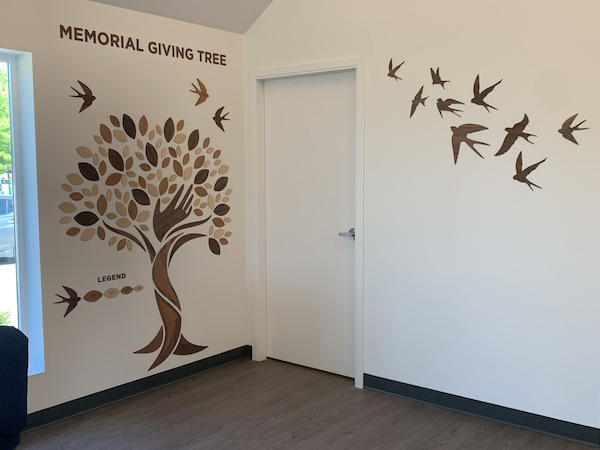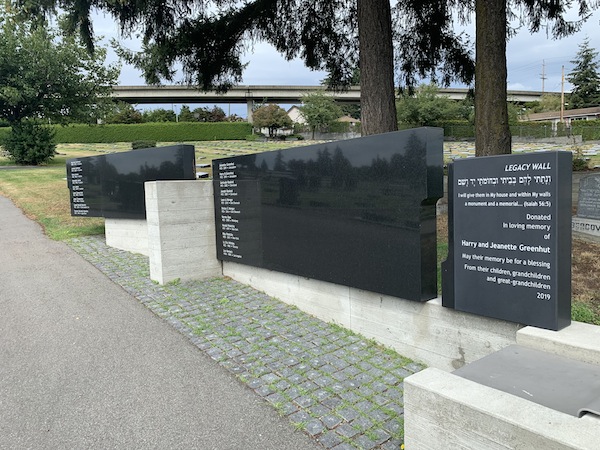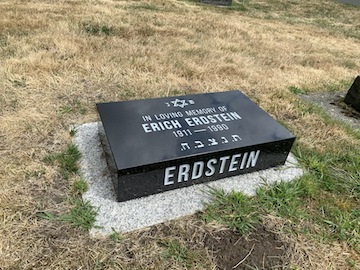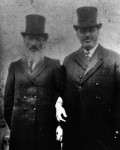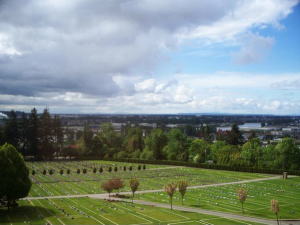On Sept. 1, burial plot costs and funeral prices are set to increase. (photo from Schara Tzedeck Cemetery Board)
After Lorna Krangle’s husband, Larry, passed away last year, she determined to put her own final plans in place and not to leave funeral arrangements for her family.
“After burying him, I just thought, I’ve got to do something,” she told the Independent. “I’m not going to have all the kids being worried and putting money together or whatever. They’ve got their own families.”
Krangle, 87, has deep roots in Vancouver. She was born here, and grew up around the city, first on Main Street, near the Ivanhoe Hotel, and, later, at 19th and Cambie. She and Larry raised their six kids on the North Shore.
Larry and his brother, Jack, ran Regent Tailors, adjacent Victory Square at the heart of Vancouver’s downtown. Lorna was a ceiling-busting female saleswoman, taking orders from retailers and outfitting the Canadian Pacific Airlines female flight crews with their uniforms.
It was only recently, though, that she turned her attentions to a different kind of business: making final arrangements. Now, she is urging everyone to take the step. Krangle is a bit of an evangelist for pre-arranging.
Howard Jampolsky, executive director of the Schara Tzedeck Cemetery Board, agrees wholeheartedly. He is also urging people to consider taking the step before Sept. 1, when prices for both cemetery plots and funeral services go up significantly.
The cemetery board is the not-for-profit charity that operates Jewish burial facilities in New Westminster, Surrey and at the historic Jewish cemetery located in Vancouver’s Mountain View Cemetery.
Planning ahead can bring peace of mind to families, Jampolsky said, and it also presents the opportunity to spread the not-insignificant costs over an extended period. Without prepayment, costs of the burial plot and funeral services are due at the time of burial. Prepaying allows the fees to be spread out over months or years, with no interest or service fees. All funds, by law, are held in trust, he said.
The cemetery board now sells plots and funeral services as a package, which is a fairly new approach. It used to be common for people to prepay for the plot, but not the funeral.
“The fact of the matter is, if you pay for the plot and not the funeral, the funeral price is still going to continue to go up,” he said.
The term “pre-planning” is a common term in the funeral sector. However, it doesn’t really apply in this case, Jampolsky said. In other cities, Jewish funeral providers may be for-profit entities and offer a diversity of services. The Schara Tzedeck Cemetery Board’s philosophy is that the type or quality of a funeral should not be determined by the wealth of the deceased.
“There is really no planning for a Jewish funeral,” he said. “A Jewish funeral, as we provide one, is pretty much the same for everybody.” Unlike in other traditions or places, there is no music to choose, no flowers to select. The caskets Schara Tzedeck offers are simple pine boxes intended for speedy decomposition per Jewish tradition.
“We believe that everybody comes into the world equal, they should go out of the world equal and, to the best of our ability, that’s what we try to do,” he said.
There is another fundamental tenet of the nonprofit funeral provider, Jampolsky said: “Every Jewish person has the right to a full and proper Jewish burial.”
“If you do have financial constraints and you would like to discuss options available, certainly we can work something out,” he said. “That’s when I sit down and talk to people one-on-one and find something that works for them and works for us.”
The financial situation of a household is also a factor in considering prepayment. Preparing in advance is a good plan, he said – but not if it causes financial hardship.
“If people are struggling, if they are on a fixed income, I don’t want people to prepay their funeral and have to sit in the dark or not have their television or have to give up a vacation,” he said. “You have to live. Living is most important. But, for those who just want to get it out of the way and taken care of, it’s a great set-up.”
On Sept. 1, the cost for a plot at the New Westminster cemetery will rise to $14,000 from the current $12,500. Plots at Schara Tzedeck’s Surrey cemetery will go up to $7,500 from $6,500. There are still several dozen plots available at the old Jewish cemetery at Mountain View – Jampolsky acknowledges that some people may be under the impression the cemetery is full – and those prices are rising to $27,000 from $23,500, keeping in line with prices in the non-Jewish section of Mountain View.
Funeral services at all locations are increasing to $13,000 from $12,000.
Getting affairs in order ahead of time can make a sad and stressful time a little easier, said Jampolsky.
“I’ve seen this so many times when we are dealing with a family,” he said. “We’re talking about picking up their loved one and we’re talking about doing a burial tomorrow, because it’s so quick, and then we have to talk about the money and what it’s going to cost and they have to figure that out.”
Pre-arranging can take that element out of the mix for the survivors.
“It’s a very significant gift to give to your loved ones,” Jampolsky said. “You can remove that burden from the ones you love.”

